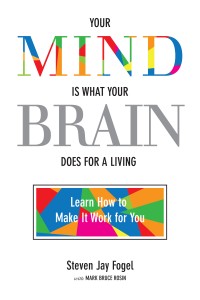Pause Your Machinery: Organizing and Guiding Principles

Stop and take a moment to “pause your machinery.” The concepts and techniques I present throughout my latest book, Your Mind Is What Your Brain Does for a Living, require mindfulness to learn and master, and this brief written exercise will give you the opportunity to rest, step outside the pattern of passive reading, and bring yourself into the present moment to reflect and see how the information I want to share with you can be integrated into your own life.
Keep your written answers, because they will be valuable for you to review and refer to later. You may want to buy a notebook or open a computer file so that you can keep all of your responses together in one place.
- Review your list of Organizing Principles. Identify and write down any beliefs you’ve been holding that you feel are dysfunctional, and write them down. (Since all of your Organizing Principles may be dysfunctional, this list may be the same as your original list, which you created previously)
- Referring to your list of dysfunctional Organizing Principles, create a new corresponding Guiding Principle to counteract each one. These Guiding Principles will help you to act in healthier ways and support you in remodeling your brain and achieving your goals for self-transformation. For example, if one of your Organizing Principles has been “There’s no point in setting goals for myself because I can’t achieve them,” you might create the new Guiding Principle “I can create and achieve goals for myself because the world is filled with possibility.”
One of the goals all of us have is to experience more joy in our lives than pain, yet some of us find ourselves continuing to be unhappy in a relationship or creating pain for ourselves by acting dysfunctionally in situation after situation. Why and how do we do this? And what can we do to break these long-term patterns
One of the goals all of us have is to experience more joy in our lives than pain, yet some of us find ourselves continuing to be unhappy in a relationship or creating pain for ourselves by acting dysfunctionally in situation after situation. Why and how do we do this? And what can we do to break these long-term patterns?
An excerpt from my recent book, Your Mind Is What Your Brain Does for a Living, now available at Amazon.
- 5 Feb, 2015
- Posted by Steve Fogel
- 0 Comments



COMMENTS